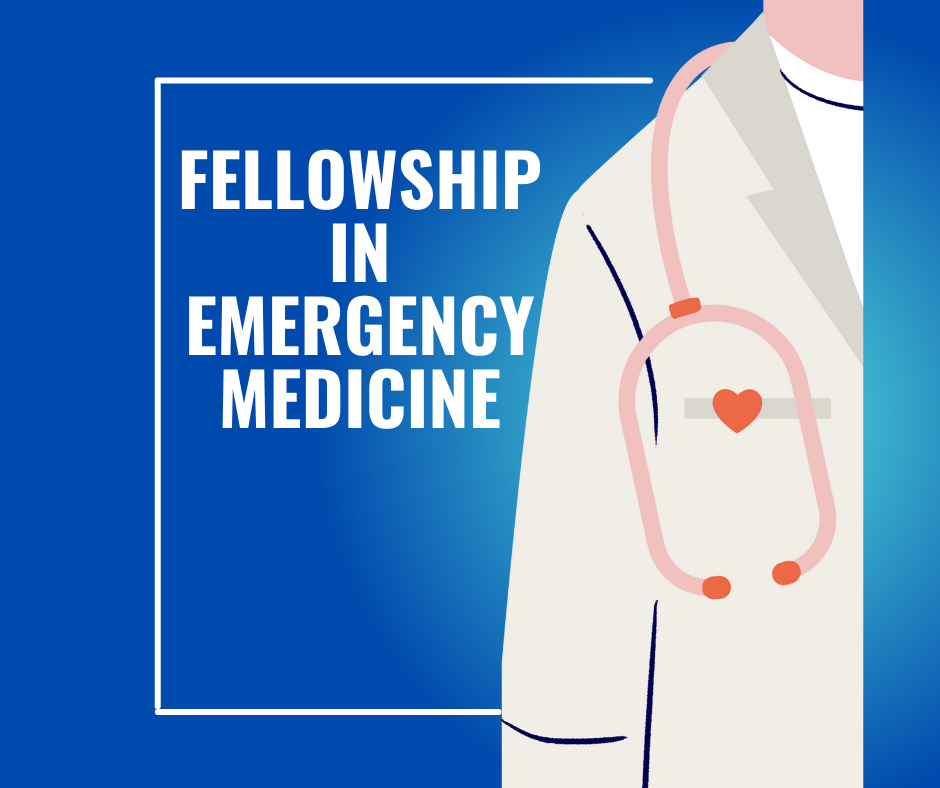
The global increase in medical emergencies due to natural disasters, trauma cases, infectious diseases, and chronic health conditions, emergency medicine has seen an unprecedented rise in demand. Hospitals and urgent care centers need professionals who can assess, diagnose, and treat patients swiftly and accurately. This demand extends beyond urban centers to rural areas with limited access to specialized care. Online programs bridge these gaps by equipping healthcare professionals with the skills necessary to respond effectively, regardless of location. Emergency medicine stands as one of the most fast-paced, challenging, and rewarding medical fields. It demands exceptional clinical expertise, critical decision-making skills, and the ability to remain composed under pressure. For medical professionals seeking to enhance their knowledge and competencies in acute care, pursuing a Fellowship in Emergency Medicine offers an invaluable opportunity to hone these abilities while contributing meaningfully to patient outcomes and community health.
Why Choose a Fellowship in Emergency Medicine?
A Fellowship in Emergency Medicine is designed to equip medical practitioners with the advanced training needed to handle complex cases in the emergency department (ED). While standard training during medical school and residency provides a strong foundation, a fellowship allows practitioners to deepen their expertise in trauma care, resuscitation, emergency procedures, and the management of critically ill or injured patients.
Core Benefits of the Fellowship Program
- Comprehensive Clinical Exposure
A fellowship program immerses trainees in a high-intensity clinical environment where they encounter diverse cases ranging from cardiac arrests and severe trauma to neurological emergencies and acute respiratory distress. This exposure helps refine diagnostic skills and treatment strategies for various urgent conditions. - Advanced Procedural Training
Fellows gain hands-on experience in advanced emergency procedures such as central line placement, endotracheal intubation, and thoracotomy. These skills are crucial for stabilizing patients and improving survival rates in life-threatening scenarios. - Leadership and Management Development
Emergency medicine professionals are often tasked with leading teams, coordinating patient care, and making split-second decisions. A fellowship enhances leadership capabilities and teaches fellows how to manage an ED effectively, ensuring optimal patient flow and resource allocation during high-pressure situations. - Research and Academic Opportunities
Most fellowship programs incorporate research components, allowing fellows to contribute to the advancement of emergency medicine through clinical studies, evidence-based practice development, and participation in scholarly activities. This fosters a culture of continuous learning and keeps fellows abreast of the latest medical advancements. - Specialized Training
Depending on the program’s focus, fellows may receive specialized training in areas such as pediatric emergency medicine, disaster medicine, or toxicology. This adds a unique dimension to their practice, broadening their ability to respond to various emergencies with precision.
What to Expect from the Program
A typical Fellowship in Emergency Medicine runs for one to two years, varying by institution. The curriculum is usually a blend of hands-on clinical training, academic coursework, simulations, and supervised practice.
Fellows may participate in:
- Rotations in various hospital departments such as intensive care, trauma surgery, and cardiology to build a comprehensive understanding of emergency care.
- Workshops and training sessions focused on the latest technologies and techniques in emergency medicine.
- Conferences and seminars to expand knowledge and network with other emergency care professionals.
Career Prospects and Future Growth
Completing a Fellowship in Emergency Medicine opens numerous career paths. Graduates may choose to work in major hospital EDs, lead trauma centers, or pursue academic and teaching positions. The fellowship also serves as a springboard for those interested in specializing further or assuming leadership roles within emergency services.
What an Online Emergency Medicine Program Offers?
Online emergency medicine programs are designed to provide comprehensive training through a flexible learning format. Key aspects of these programs typically include:
- Interactive Learning Modules: Advanced e-learning tools allow participants to engage with interactive case studies, video simulations, and quizzes that mirror real-life emergencies.
- Expert-Led Webinars and Lectures: Courses often feature sessions from experienced emergency medicine physicians who share insights from their practice, providing learners with valuable perspectives.
- Critical Decision-Making Training: Emphasis on clinical scenarios and decision-making exercises trains participants to prioritize patient needs, choose appropriate treatments, and manage time-sensitive cases effectively.
- Latest Evidence-Based Practices: Programs ensure that participants stay current with the latest research, treatment protocols, and technological advancements in emergency care.
- Self-Paced Learning: One of the most attractive features of an online program is the ability to learn at one’s own pace, accommodating different schedules without sacrificing quality.
Conclusion
An Online Emergency Medicine Program is more than an advanced training program—it’s a career-defining experience that empowers medical professionals to elevate their clinical practice, contribute to innovative research, and become leaders in a critical area of healthcare. As emergency departments evolve with new challenges, specialized training ensures that physicians are well-equipped to meet the demands and save lives when seconds count.



0 Comments